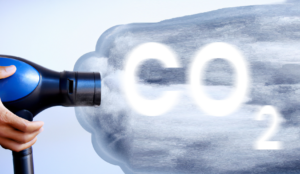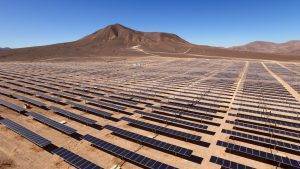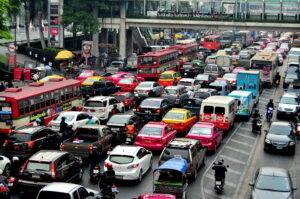Publications
Sustainable and renewable fuels should be taken into account in the EU regulations for road transport! Renowned representatives of the European industry plead for this in an open letter to the EU Commission. GES supports the initiative.
MehrThe burning of coal, gas and oil causes the dangerous rise in CO2 levels in the atmosphere that has been going on for decades, leading to warming and climate change. If it were possible to reliably capture the CO2 produced and then dispose of or use it, the world would be one step further. Carbon […]
MehrGermany tends towards moralising know-it-allism. GES criticises in particular the tendency towards climate nationalism, and argues against it: The climate crisis can only be solved globally. Our politics, on the other hand, often moves within a national frame of thinking, spends a lot of money and concentrates a lot of people’s personal commitment in the […]
MehrThe Danish Maersk Line is the largest container shipping company in the world. It has set itself ambitious climate targets. By 2030, 60 percent of CO2 emissions are to be saved in the shipping fleet, compared to 2018. Maersk has already ordered 19 seagoing container ships that can also be powered by methanol. Other climate-neutral […]
MehrAn excerpt: A prosperity-compatible energy and climate strategy for the world with an outlook to the year 2050 and a population of ten billion people requires – also proportionally – a multiple of today’s amount of climate-friendly electricity. This will be generated in various ways: old and new methods of using renewable energies, fossil energy […]
MehrSince Russia stopped its natural gas supplies to Europe, it has been flaring large quantities of gas. This is only one, but particularly irritating, facet of the unfortunately widespread problem. For the mass burning of “superfluous” gas is common practice in oil and gas production. There are about 10,000 flares worldwide with an annual exhaust […]
MehrHydrogenated vegetable oils are considered the new generation of biofuels. Unlike biofuels produced from rapeseed or maize, Hydrogenated Vegetable Oils (HVO) do not compete with food production (plate-tank problem). After all, they are produced from waste materials such as cooking oil residues. The global market for used oils and fats ranges between 50 and 80 […]
MehrFrom 2035 on, only new cars that do not emit greenhouse gases are to be sold in the European Union. Electric cars are thus set and the use of e-fuels is being examined. From GES’ point of view, not only a European but also a global solution is needed. E-fuels are an important building block […]
MehrAn electric motor requires different raw materials than a combustion engine: for example, rare earths for powerful magnets. In order to generate and use energy, the global energy transition requires a significantly different raw material base than the fossil age. The transition may lead to a wide variety of supply bottlenecks in the coming years. […]
MehrAn excerpt: The fixation on green hydrogen in steel production could get Germany’s industry into serious trouble. Discussing a climate-friendly steel industry, GES recommends considering CO2-elimination pathways other than direct reduction with hydrogen. Especially on an international level, supplementing the existing blast furnace route with CCS or CCU seems to be a promising path. This […]
Mehr- « Previous
- 1
- 2
- 3
- Next »












